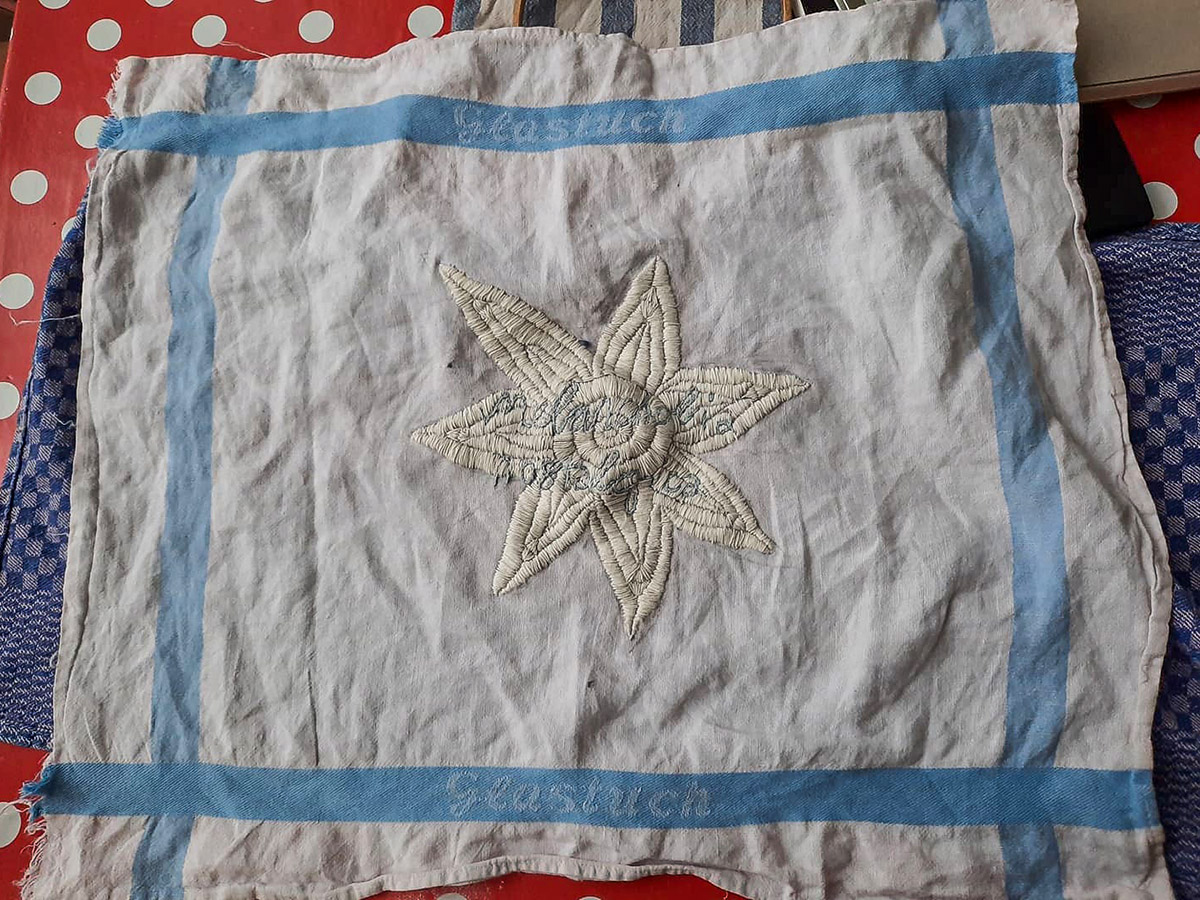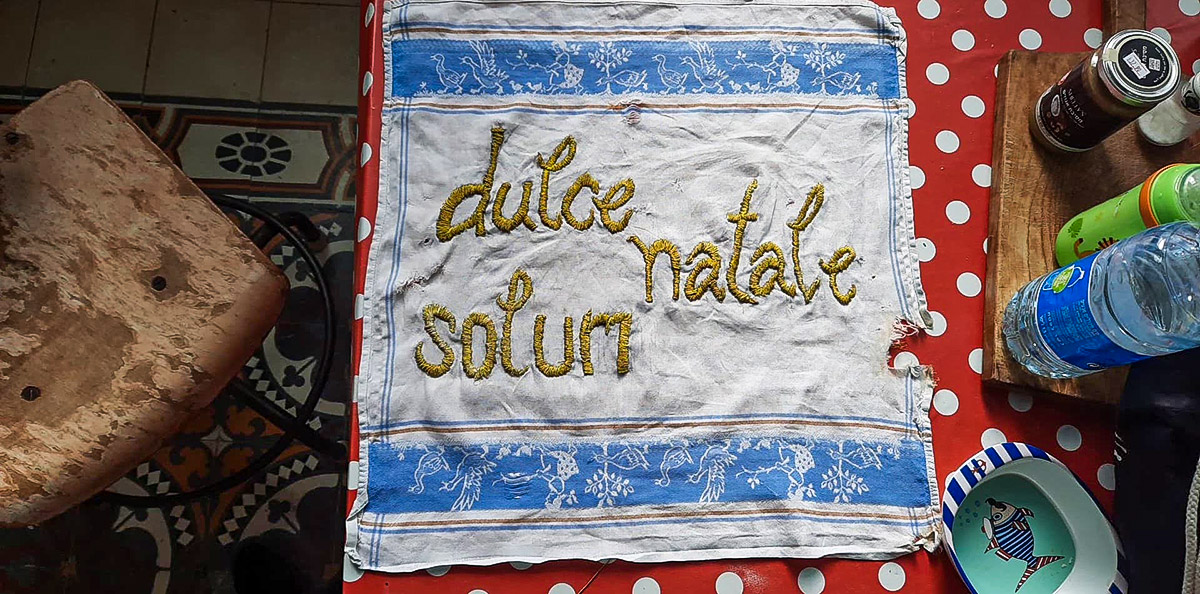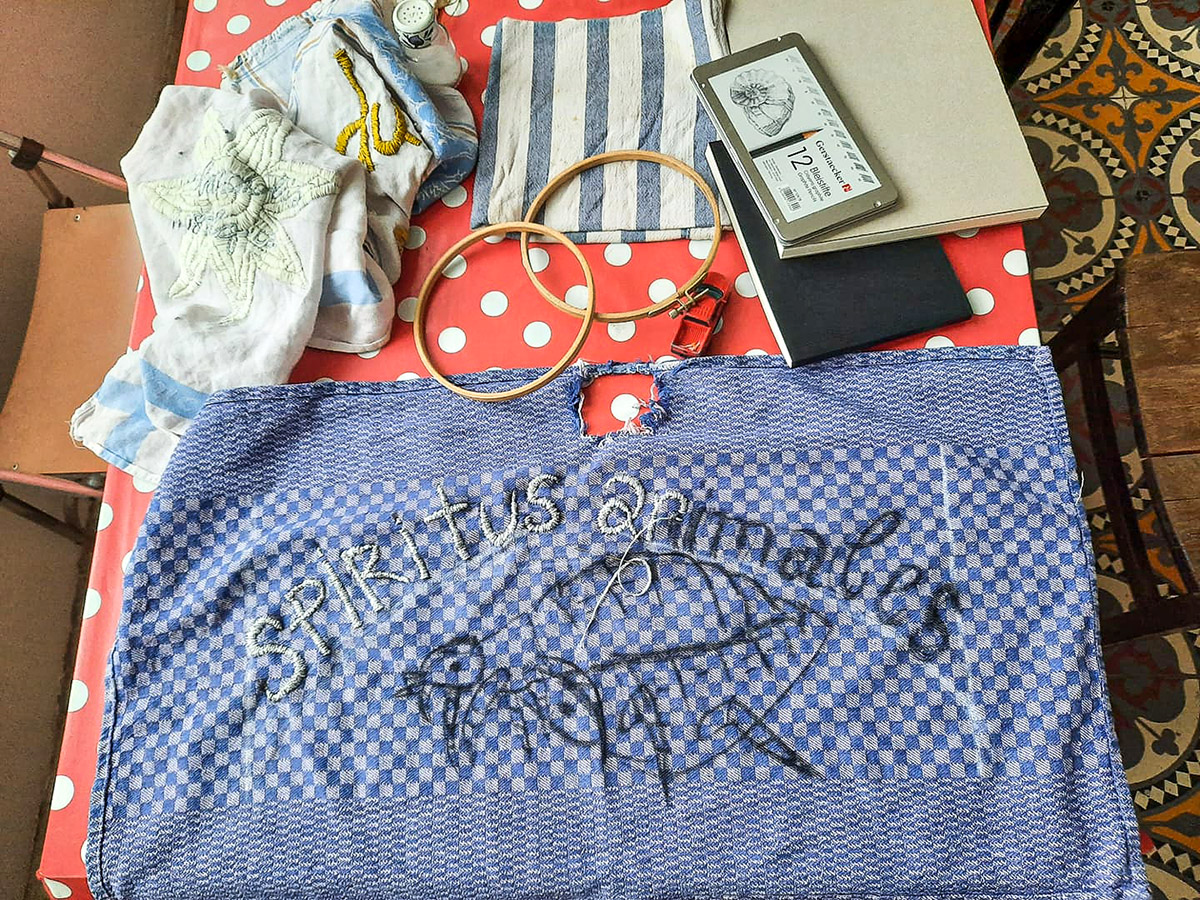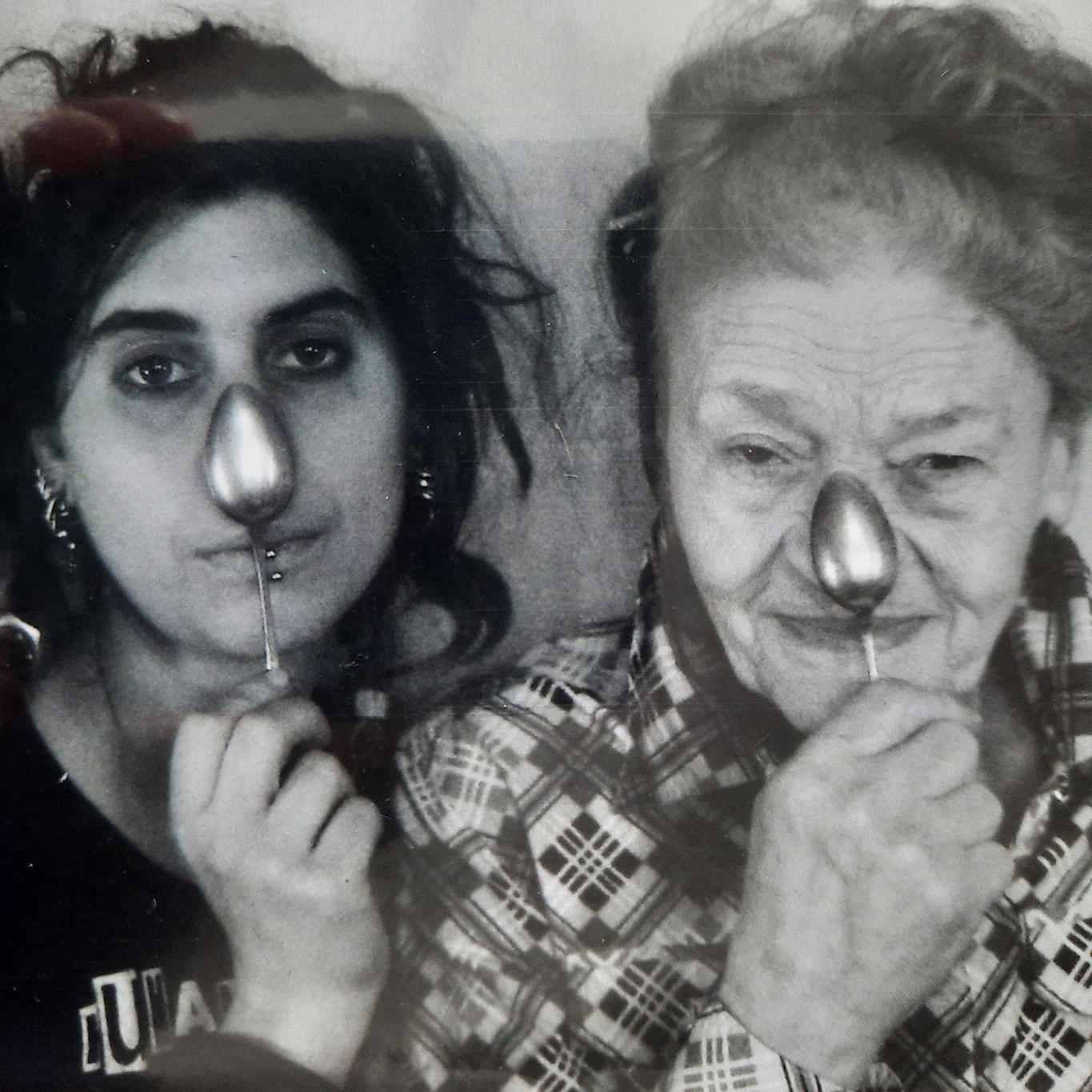elianna renner
frankfurt
My embroidery alludes to traditional folk embroidery that incorporates well-known proverbs such as „Home Sweet Home“. Here, the imprecise needlework on old, used dish towels flirts with traditional industriousness and confronts the concept of homesickness. According to my research, homesickness was referenced for the first time in Switzerland in 1651. In 1688, nostalgia as a disease pattern was first defined by the doctor Johannes Hofer from Basel. Homesickness is also called „Swiss disease“ (Morbus Helveticus, Maladie Suisse). The related melancholy is described as being caused by an unsatisfied longing for home. It can lead to the deterioration of physical health, to utter exhaustion, emaciation, fever, loss of appetite, and even death.
Rather than adorning proverbs, here the needlework adorns Latin terms related to medical examinations of homesickness/nostalgia delineated in the article „Homesickness and Crime“ by the psychiatrist and philosopher Karl Jaspers (1909). Jaspers reported on nannies working far away from home who became violent towards the children entrusted to their care. Jaspers attributed the attacks of the young women to desperate homesickness.
Senhejma in Esperanto means homeless. The word is composed of “sen” which means without, from “sine” in Latin, as well as “hejmo”, which can be found in Yiddish as “heym” and in German as “Heim”, meaning home.



